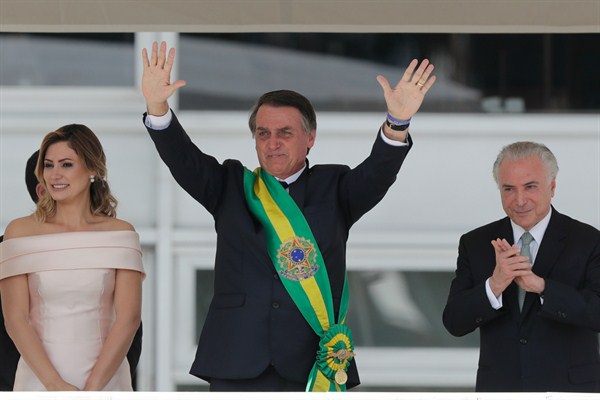The new year marked the beginning of a new era for Latin America’s largest country. Jair Bolsonaro, the far-right winner of Brazil’s presidential election, assumed office amid a remarkable swirl of contrasting expectations. While the former army captain’s incendiary declarations during the election campaign last fall sparked fears among millions of Brazilians and others abroad, a less noticed phenomenon took shape in the weeks leading up to his inauguration on Jan. 1: Brazilians, by large majorities, are optimistic about his tenure.
In two surveys last month, Brazilian pollsters found that a stunning 75 percent of respondents approved of Bolsonaro, and two-thirds expected the new administration to bring about a turnaround in Brazil’s economic fortunes. That is notable, and a bit of a head-scratcher, considering that for years the most popular politician in the country has been former President Luiz Inacio Lula da Silva, a leftist leader who made his name as a union organizer and a campaigner for social justice, essentially embracing policies that Bolsonaro diametrically opposes.
The optimism of the majority, however, does not conceal the alarm around Bolsonaro’s rise. During the campaign, he railed against minorities and women and spoke approvingly of Brazil’s past military dictatorship, and dismissively of environmental concerns. At his inauguration, he vowed to “restore and rebuild our homeland, liberating it from corruption, economic irresponsibility and ideological traps,” a sign of the new administration’s ideological goals.

